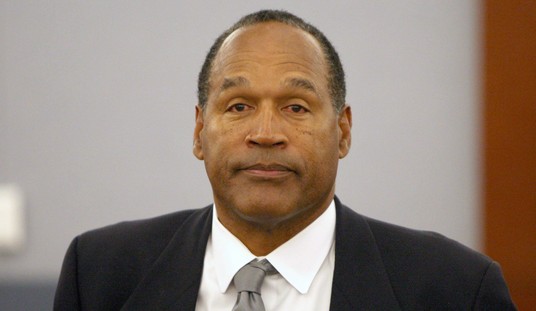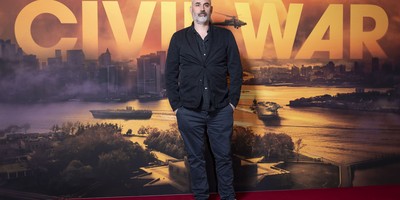Republican presidential nominee Mitt Romney delivered a serious and forceful foreign policy speech at the Virginia Military Institute earlier today, criticizing the atrophy of American influence and alliances over the last four years, and emphasizing the importance of clear-eyed American leadership in the world. Greg has already flagged one of Romney's more memorable lines, "hope is not a strategy," but there were a number of additional passages worth underlining:
(1) As I discussed earlier, the candidate turned up the heat on the administration over its calamitous handling of the Benghazi attacks, making brief mention of their unraveling explanations:
Last month, our nation was attacked again. A U.S. Ambassador and three of our fellow Americans are dead—murdered in Benghazi, Libya. Among the dead were three veterans. All of them were fine men, on a mission of peace and friendship to a nation that dearly longs for both. President Obama has said that Ambassador Chris Stevens and his colleagues represented the best of America. And he is right. We all mourn their loss. The attacks against us in Libya were not an isolated incident. They were accompanied by anti-American riots in nearly two dozen other countries, mostly in the Middle East, but also in Africa and Asia. Our embassies have been attacked. Our flag has been burned. Many of our citizens have been threatened and driven from their overseas homes by vicious mobs, shouting “Death to America.” These mobs hoisted the black banner of Islamic extremism over American embassies on the anniversary of the September 11th attacks.
As the dust settles, as the murdered are buried, Americans are asking how this happened, how the threats we face have grown so much worse, and what this calls on America to do. These are the right questions...The attack on our Consulate in Benghazi on September 11th, 2012 was likely the work of forces affiliated with those that attacked our homeland on September 11th, 2001. This latest assault cannot be blamed on a reprehensible video insulting Islam, despite the Administration’s attempts to convince us of that for so long. No, as the Administration has finally conceded, these attacks were the deliberate work of terrorists who use violence to impose their dark ideology on others, especially women and girls; who are fighting to control much of the Middle East today; and who seek to wage perpetual war on the West.
Recommended
(2) Romney sternly raps Obama for deliberately creating "daylight" between the United States and Israel while displaying a lack of moral clarity on Iran. Note well that Romney goes out of his way to identify Israel as "our closest ally" in the Middle East, a distinction that the president recently obscured:
The relationship between the President of the United States and the Prime Minister of Israel, our closest ally in the region, has suffered great strains. The President explicitly stated that his goal was to put “daylight” between the United States and Israel. And he has succeeded. This is a dangerous situation that has set back the hope of peace in the Middle East and emboldened our mutual adversaries, especially Iran. Iran today has never been closer to a nuclear weapons capability. It has never posed a greater danger to our friends, our allies, and to us. And it has never acted less deterred by America, as was made clear last year when Iranian agents plotted to assassinate the Saudi Ambassador in our nation’s capital. And yet, when millions of Iranians took to the streets in June of 2009, when they demanded freedom from a cruel regime that threatens the world, when they cried out, “Are you with us, or are you with them?”—the American President was silent.
(3) The broader context of "hope is not a strategy," which embraces the president's aspirations while indicting his actions:
The President is fond of saying that “The tide of war is receding.” And I want to believe him as much as anyone. But when we look at the Middle East today—with Iran closer than ever to nuclear weapons capability, with the conflict in Syria threating to destabilize the region, with violent extremists on the march, and with an American Ambassador and three others dead likely at the hands of Al-Qaeda affiliates— it is clear that the risk of conflict in the region is higher now than when the President took office. I know the President hopes for a safer, freer, and a more prosperous Middle East allied with the United States. I share this hope. But hope is not a strategy. We cannot support our friends and defeat our enemies in the Middle East when our words are not backed up by deeds, when our defense spending is being arbitrarily and deeply cut, when we have no trade agenda to speak of, and the perception of our strategy is not one of partnership, but of passivity.
(4) Romney unveils a long-overdue riposte to President Obama's "endless war" straw-man, conjured for political purposes to manipulate an understandably war-weary public:
And in Afghanistan, I will pursue a real and successful transition to Afghan security forces by the end of 2014. President Obama would have you believe that anyone who disagrees with his decisions in Afghanistan is arguing for endless war. But the route to more war – and to potential attacks here at home – is a politically timed retreat that abandons the Afghan people to the same extremists who ravaged their country and used it to launch the attacks of 9/11. I will evaluate conditions on the ground and weigh the best advice of our military commanders. And I will affirm that my duty is not to my political prospects, but to the security of the nation.
(5) Finally, Romney makes a compelling case against the temptation of isolationism, warning of the adverse consequences if America's dominant world leadership role is allowed to recede:
I will roll back President Obama’s deep and arbitrary cuts to our national defense that would devastate our military. I will make the critical defense investments that we need to remain secure. The decisions we make today will determine our ability to protect America tomorrow. The first purpose of a strong military is to prevent war... I know many Americans are asking a different question: “Why us?” I know many Americans are asking whether our country today—with our ailing economy, and our massive debt, and after 11 years at war—is still capable of leading. I believe that if America does not lead, others will—others who do not share our interests and our values—and the world will grow darker, for our friends and for us. America’s security and the cause of freedom cannot afford four more years like the last four years. I am running for President because I believe the leader of the free world has a duty, to our citizens, and to our friends everywhere, to use America’s great influence—wisely, with solemnity and without false pride, but also firmly and actively—to shape events in ways that secure our interests, further our values, prevent conflict, and make the world better—not perfect, but better.
This is a crucial argument to advance. The vast majority of Americans -- even many who reject US military adventurism and oppose unnecessary interventions -- understand that if US hegemony fades, someone will fill the resulting void. Would America (or the world) be safer or more free if any of today's emerging powers with robust military ambitions surpassed us? The Obama campaign is already denouncing Romney's speech as reflecting an even more "extreme" vision than that of President Bush -- a leader, I'd add, who kept us safe for seven years following 9/11. I'd encourage you to read the full transcript of today's prepared remarks and consider whether the strategy and principles laid out strike you as recklessly bellicose or wild-eyed. When video becomes available, we'll add it measured. Romney's delivery was steady and measured -- presidential, even.
UPDATE - Video of a key segment of the speech via the UK Telegraph:
UPDATE II - A new poll shows Romney crushing Obama among military voters. The survey of more than 3,000 active and reserve personnel shows the Republican outpacing the Democrat by a 40-point margin, 66-26 percent. Ahem.

























Join the conversation as a VIP Member